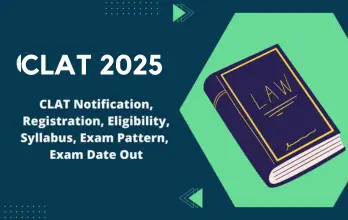
The more questions you manage to answer accurately, the higher your score will be. In this blog, we'll delve into a variety of effective strategies that are designed to help you smoothly navigate the CLAT paper while making sure you stay within the time limits.
Understanding the CLAT Paper Structure
Each of these sections has its unique importance because they test you on various aspects of legal knowledge and logical reasoning, GK, English language, and Quantitative techniques. It's vital to get a grip on what each section is all about because they act like a roadmap guiding you through the CLAT paper.
Think of each question as a piece of a puzzle, and your approach to solving them should be tailored according to the specific demands of the section they belong to. To truly shine in the CLAT examination, you must approach each section wisely, making the best use of the limited time you have.
Pre-Exam Preparation for Time Efficiency
Thus, I'm going to provide you with a set of pre-exam preparation tips that are geared toward helping you manage your time efficiently. By incorporating these tips into your preparation, you can boost your performance on the day of the exam.
- Thoroughly cover your syllabus.
- Regularly practice with mock tests.
- Review your study notes 2-3 times before the exam.
- Engage in quizzes to revise and practice General Knowledge (GK) and Current Affairs.
- Maintain a healthy body and mind.
- Strategize your paper attempt based on your strengths and weaknesses.
- Implement effective time management techniques.
- Seek guidance from experts and maintain motivation throughout your preparation.
- Ensure you have all the necessary documents for the exam hall.
Smart Time Allocation for Different Sections
For instance, consider the legal reasoning section. It often involves complex scenarios and intricate reasoning, which naturally take more time to understand and solve thoroughly. On the other hand, there are sections, such as the general knowledge (GK) section, where you can answer questions more swiftly because they require factual knowledge rather than in-depth analysis.
To perform exceptionally well in the exam, you need to make smart decisions about how you allocate your time. This entails recognizing your strengths and weaknesses in different subjects and topics. By doing so, you can tailor your time management strategy to make the most of your abilities.
Strategic time allocation is not just about completing a section within a set timeframe. It's about using your time effectively to maximize your score. By allocating more time to sections that you find challenging and less time to those where you excel, you can optimize your performance.
To master this skill, it's crucial to practice these time allocation strategies during your preparation. Solve mock tests to experiment with different approaches and gauge their effectiveness. This hands-on experience will help you identify the strategy that suits you best, ensuring that you can consistently deliver your optimal performance in the actual exam. So, invest the time and effort to refine your time management skills, and you'll be well-prepared to excel on exam day.
Techniques for Speedy Reading and Comprehension
Two essential speed reading techniques to embrace are skimming and scanning. Skimming involves quickly glancing through a passage, focusing on important sentences and words while grasping the overall context. Scanning helps you find specific data or answers by quickly locating and highlighting relevant words or sentences.
Both skimming and scanning are highly effective speed reading methods worth mastering. They enhance your reading style significantly. Proficiency in these techniques enables you to sift through passages swiftly, extract important information, and respond accurately. These skills not only save time during the exam but also boost your confidence and precision in approaching each section.
Effective Time Management During Legal Aptitude
This section evaluates your capacity to grasp legal principles, employ critical thinking skills, and analyze legal situations. To optimize your performance in this section, consider the following tips for effective time management:
- Understand the question type.
- Carefully read the questions.
- Efficiently skim the passage.
- Identify relevant information in the passage for the question.
- Prioritize answering direct questions first.
- Stay vigilant for tricky questions and attempt to steer clear of them.
- Keep a handle on your anxiety and avoid panicking.
- Review your answers if there is spare time.
Tips for Swiftly Handling Logical Reasoning
Excelling in this section requires a strategic approach, and here we will explore tips aimed at helping you adeptly navigate the challenges posed by the Logical Reasoning section, ensuring swift and efficient handling of its various components.
- Carefully read and comprehend the question
- Rapidly skim the entire passage to grasp its context
- Prioritize solving direct and easy questions
- Apply critical thinking and problem-solving skills where necessary
- Mark your answers accurately within the shortest possible time
Quick Navigation Through Mathematics Questions]
Therefore, it is imperative to be vigilant and constantly on the lookout for opportunities to secure easy marks within the mathematics section, all while striving to do so within tight time constraints.
A strategic approach involves directing your efforts toward scoring points from the areas of mathematics that are inherently less complex, such as the arithmetic chapters.
Additionally, focusing on questions from topics you have already practiced and are therefore more comfortable with can further enhance your efficiency and accuracy in tackling this segment of the CLAT exam.
Last-Minute Time-Saving Tips
- Swiftly revise key concepts, notes, formulas, and essential legal principles
- Allocate more time to your strong area and aim for precision
- Complete 1-2 timed mock tests to implement and practice your final mock-taking strategies
- Stay calm and positive in the last days of the exam and avoid unnecessary pressure
- Prioritize easy and manageable questions before tackling moderate ones
- Skip challenging and complex questions
- Efficiently manage your time
- Maintain complete focus
- Arrive early at the exam center
- Avoid spending excessive time on any one question
- Ensure you have all important documents
- Read instructions very carefully.
Mock Tests: The Ultimate Time Management Tool
Also, mock tests help you reduce exam anxiety by familiarizing you with time constraints. This boosts your confidence for the actual assessment. They serve as a diagnostic tool, pinpointing your strengths and weaknesses. This enables strategic allocation of study time for optimized performance.
Additionally, Mocks expose you to diverse difficulty levels, preparing you for exam challenges. They enhance adaptability in tackling varying question complexities. Mock tests offer a holistic preparation experience. They foster time management, reduce anxiety, aid self-assessment, and introduce complexity levels.
In conclusion, these strategies for completing your CLAT paper within the time limit are like your trusty tools on your journey to success in this challenging exam. The CLAT paper is dynamic and comes with various sections and strict time constraints. This demands a methodical and proactive approach.
By understanding the paper's structure, grasping the unique attributes of each section, and planning your strategy accordingly, you can unlock your full potential and increase your chances of securing a top rank and an excellent score in the CLAT examination. Always remember, when you're racing against the clock, a well-prepared mind and a carefully thought-out strategy can make all the difference in the world.

Author : Saurabh
Greetings! I'm Saurabh, an aspiring writer fueled by a deep passion for self-discovery through the written word. Along my journey, I have stumbled upon the enchanting realm of blog writing, which has become my true calling. As an avid wordsmith, nothing brings me greater joy than imparting knowledge and assisting students in their preparation for competitive exams. I invite you to join me on this thrilling expedition as we venture into the vast ocean of possibilities that writing offers. Stay connected to receive invaluable insights and expert guidance in every blog post. Together, let's unlock our full potential and embark on this educational adventure that awaits us!
FAQ’s
You will be allotted a restricted time frame of 120 minutes within which you are required to respond to 120 questions. Thus, the effective management of your time becomes imperative to address this challenge successfully.
Participate in time-bound practice using mock tests and quizzes. Additionally, analyze areas where you are spending excessive time and work on overcoming these shortcomings. This approach will enable you to enhance your time management skills effectively.
Prioritize your strong sections, skip tough questions, skim through passages quickly, read questions carefully, and avoid spending too much time on any one question for effective time management.
To read passages quickly and effectively during the exam, mastery of two techniques, skimming and scanning, is essential. These techniques are the most effective ways to enhance your speed reading skills.
In the Legal Aptitude section, understanding question types, careful reading, efficient skimming, prioritizing direct questions, managing exam anxiety, and reviewing answers if time permits are key time management strategies.
To enhance your calculation speed in the Mathematics section, you can concentrate on Vedic math techniques, grasp calculation shortcuts, and acquaint yourself with square roots, cubes, and tables. These methods will expedite your calculations effectively.





